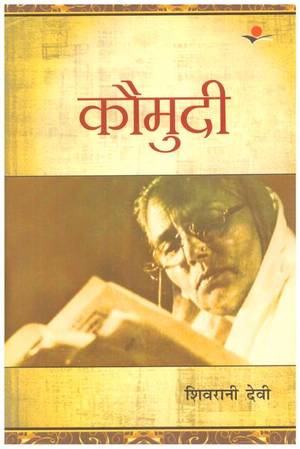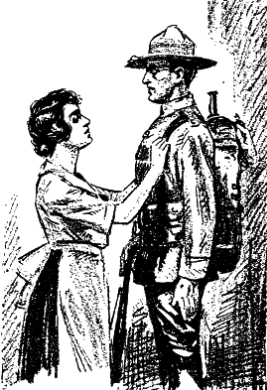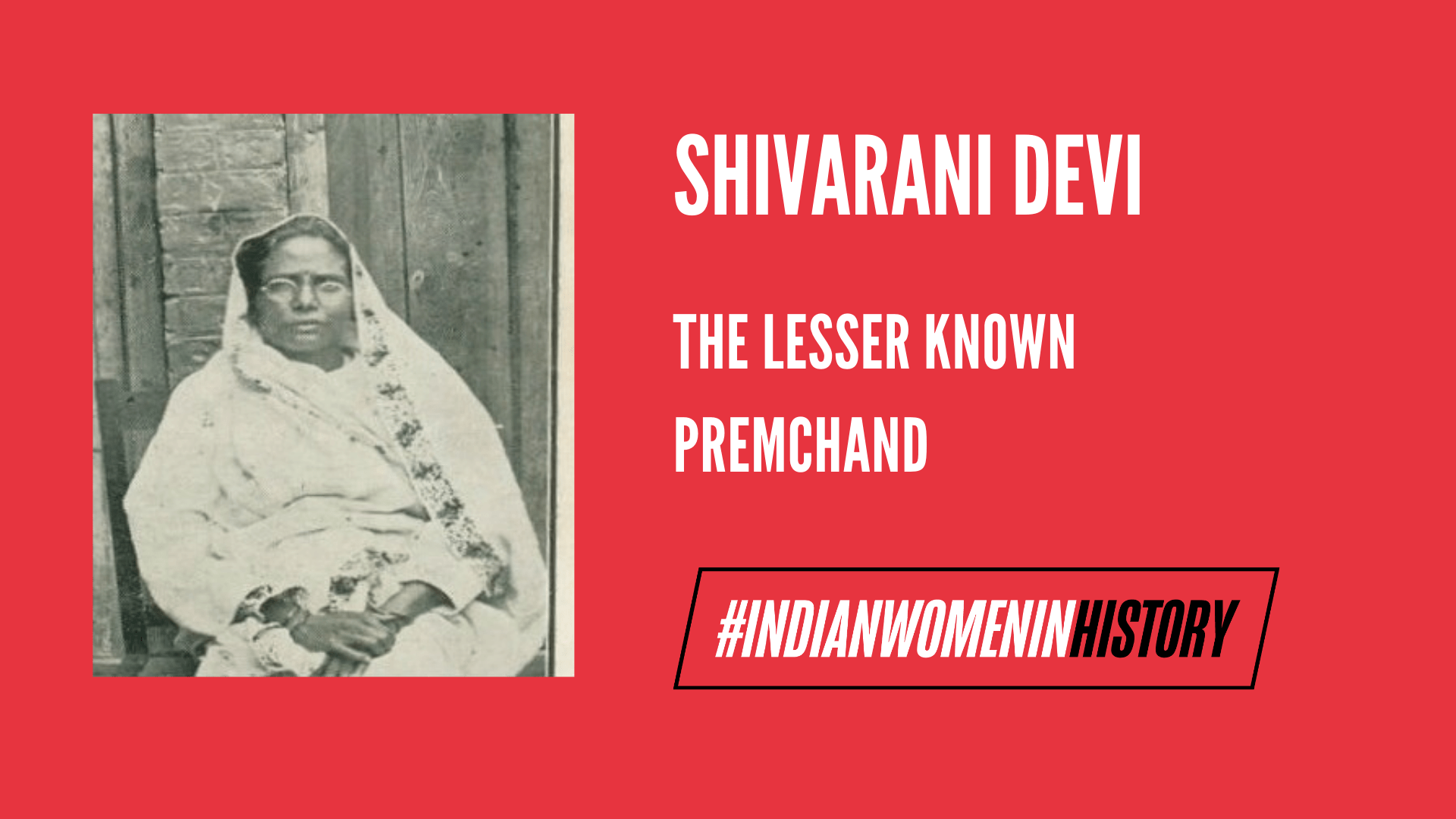My father’s collection of the 8 volumes of Mansarovar had already put me in awe of the idealistic-realism that Premchand’s creative work is riveted in. Venturing further into the world of this literary giant, I came across his wife, Shivarani Devi Premchand, who was a unique writer in her own way.

Shivarani Devi Premchand
In 1905, Shivarani Devi was married to Munshi Premchand in a ceremony arranged by her father. She was his second wife. They got married after Munshi Premchand saw an advertisement in Kayasth Bal Vidhwa Uddharak Pustika (Booklet for the upliftment of Kayasth Child Widows). Her date of birth is not known. She passed away in 1976 and her death anniversary falls on 5th December.
Shivarani Devi cultivated a love for writing after her second marriage. Her book titled, Premchand Ghar Mein (Premchand At Home) is a veritable feminist narrative. It was often alleged that the real author of the works published under her name was Munshi Premchand. He issued a contradiction stating that Shivarani Devi was a warrior and that her stories are imbued with her spirit. He further added that a man of his nature, calm and peaceful, could never even imagine such aggressive plots pertaining to the lives of women.
Shivarani Devi cultivated a love for writing after her second marriage. Her book titled, Premchand Ghar Mein (Premchand At Home) is a veritable feminist narrative. It was often alleged that the real author of the works published under her name was Munshi Premchand. He issued a contradiction stating that Shivarani Devi was a warrior and that her stories are imbued with her spirit. He further added that a man of his nature, calm and peaceful, could never even imagine such aggressive plots pertaining to the lives of women.
Sara Rai, the granddaughter of Shivarani and Premchand, points out that even in remembering her husband in Premchand Ghar Mein, the author was crafting a feminist past. Shivarani Devi’s 16 short stories from Kaumudi (Moonlight) focuses on gender empowerment themes like self-reliance and independence. Her famous stories include Kaptaan (Captain), Vidhvansa Ki Holi (Holi Of Destruction), and Aansu Ke Do Boond (Two Drops Of Tears).
Shivarani Devi also led a protest with 56 women during the Swadeshi movement in 1929. Her active participation in political struggles resulted in her being jailed on several occasions – a fact her husband was proud of!

Kaptaan by Shivarani Devi
Plotline
Kaptaan is a part of Shivarani Devi’s collection of short stories. It revolves around the characters of Zoravar Singh and his wife, Subhadra. The story starts with a happy prologue – marriage and promotion in the army rank for Zoravar Singh. While Zoravar shares the happy news of his promotion, Subhadra reacts in an unprecedented manner. She gets into the philosophical debate of responsibility and duty. Zoravar dismisses her concerns for he believes that such talks are suited to people in their old age.
In the course of the story, despite the ongoing war, Zoravar tries several times to stay at home. He doesn’t wish to leave the embrace of his wife and mother. On the other hand, both Subhadra and his mother are coaxing him to do the right thing – serve his country. The story ends with the death of Zoravar, and Subhadra wishing to follow in his footsteps.
Also read: PK Thresia: The Woman Who Was India’s First Chief Engineer | #IndianWomenInHistory
Analysis
Shivarani Devi Premchand has brought to light the sacrifice of the Indian housewife in the independence struggle. She was a follower of Gandhi and that reflects in her writing. Gandhi has often said that he learnt the most important characteristics of non-violence from the women in his family. In my understanding, this is what Shivarani Devi has tried to portray in this story. Zoravar Singh learns the most important aspect of being a soldier from the women in his life. However, Shivarani takes her female protagonist one step ahead. Subhadra sets an example for her husband and marches in the war along his side. This is the reason that her literary contributions stand at par with the likes of Subhadra Kumari Chauhan.
Women have been curtailed from joining the field of art, literary or otherwise, through systematic exclusion. Male sensibilities had been preferred and dominated the field for long. Women with a flair for writing had to assume masculine pseudonyms to get their work published. While the condition wasn’t so bad for Indian women in the 20th century, it cannot be said to be good either.
This story is a feminist narrative. It focuses on the resilience of a woman’s mind and spirit and stands against the orthodox thinking that men are rational and women are pure emotion. It advocates that people from any gender working together in the right spirit is the way forward.

Female Authorship
Women have been curtailed from joining the field of art, literary or otherwise, through systematic exclusion. Male sensibilities had been preferred, which dominated the field for long. Women with a flair for writing had to assume masculine pseudonyms to get their work published. While the condition wasn’t so bad for relatively privileged Indian women in the 20th century, it cannot be said to be good either. The questioning of talents of Shivarani Devi and allegations of her works being authored by Premchand is one example. Her works had been lost in the annals of history. However, the good news for Hindi Literature lovers is that her works have recently been re-published by Nai Kitab Prakashan.
Eclipsed By Premchand?
Shivarani Devi lived in a time when all women were eclipsed by their husbands. However, the question is – was she eclipsed by ‘Premchand’? No. Premchand was the nom de plume of both Shivarani Devi and her husband. Far from being eclipsed by it, in my opinion, she added to the worth of this pseudonym. Munshi Premchand believed in uplifting the deprived of the society but, led his literary charge through passive characters in his stories. He depicted the real conditions of the downtrodden to move his readers into action by generating sympathy for a character.
Also read: Maha Laqa Chanda: The First Female Published Urdu Poet Of The Indian Subcontinent
On the contrary, Shivarani Devi’s stories have active characters who move the readers through examples. Her characters are ruthless in upholding their morals and pledges. The literary works of Shivarani Devi and her husband are two sides of the same coin – Premchand.
About the author(s)
Sugandhaa's major areas of interest are aesthetics and feminism. She loves engaging with historical fiction - when she isn't reading it, she is daydreaming about it!





